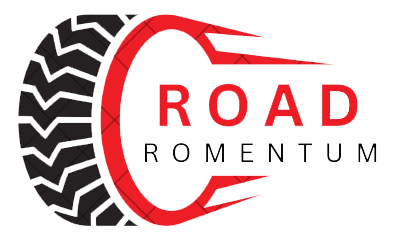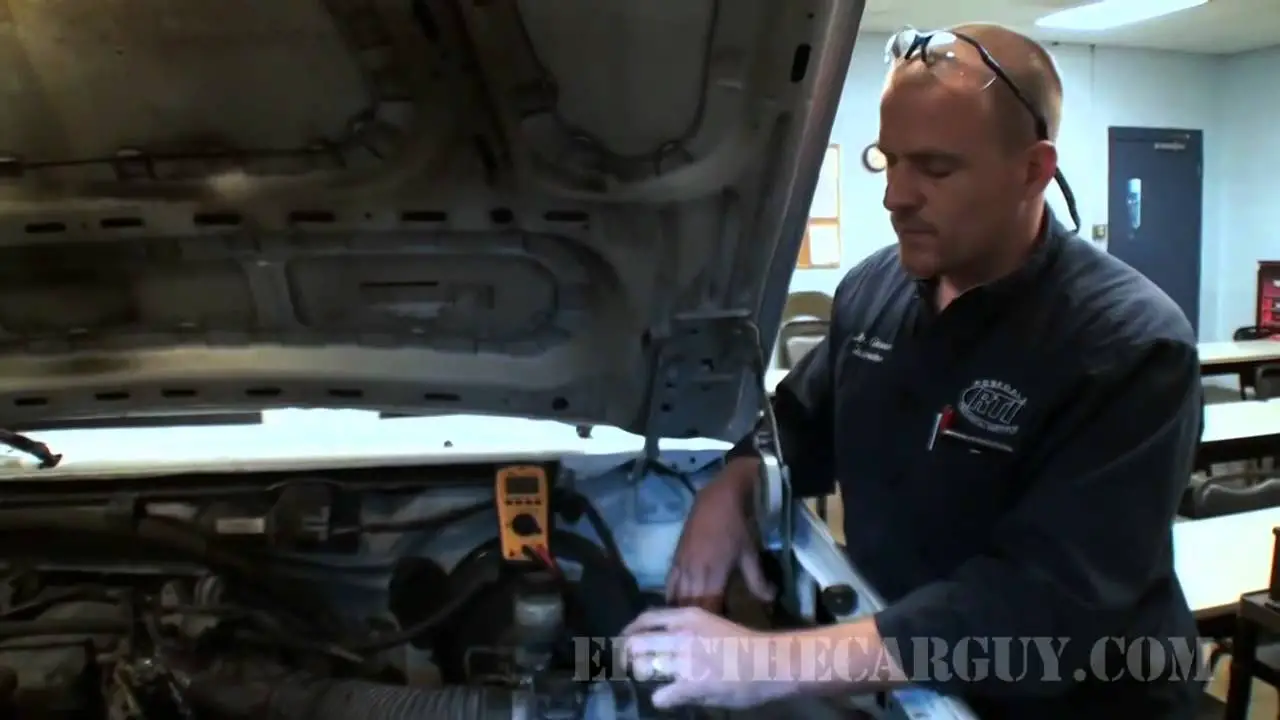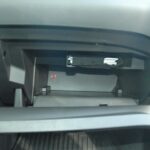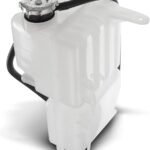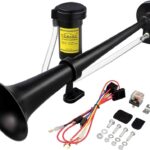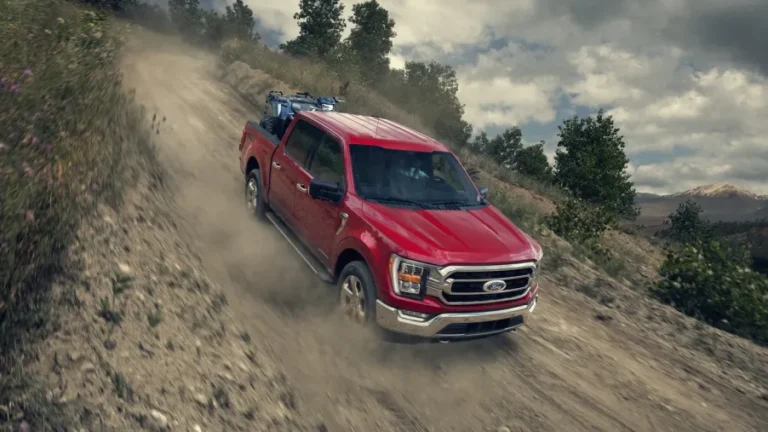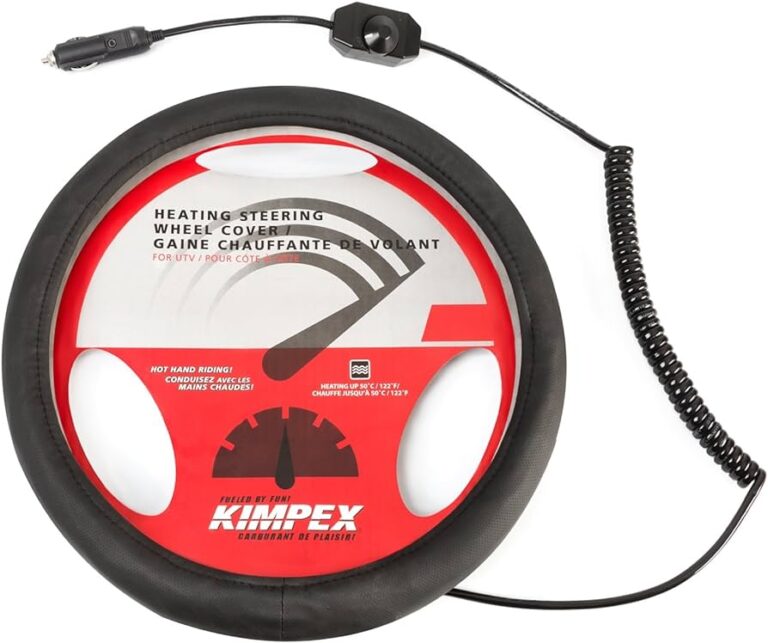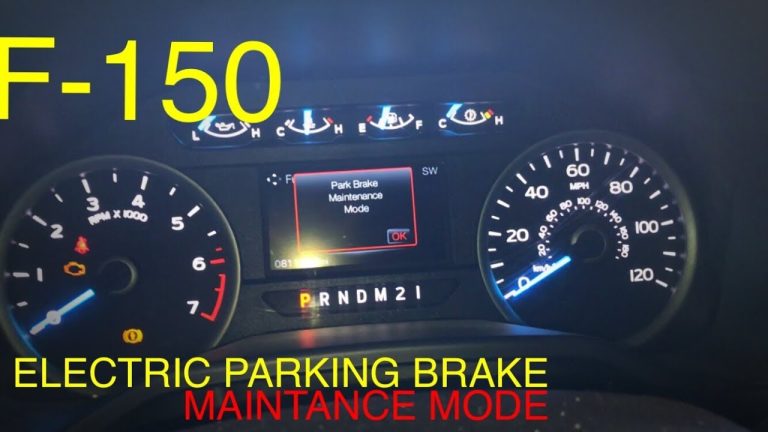What Would Cause a Ford F-150 to Not Start : Troubleshooting Tips
A Ford F-150 may not start due to a faulty starter, bad fuel pump, or dead battery. These issues can prevent the engine from turning over or receiving the necessary fuel or spark to ignite.
When faced with a non-starting F-150, it’s crucial to check these components and address any underlying issues to restore functionality to the vehicle. Understanding common reasons for this problem can help identify the cause and facilitate a quick and effective resolution.
Whether dealing with electrical issues, fuel delivery problems, or mechanical faults, knowing what could cause a Ford F-150 to not start is essential for proper maintenance and troubleshooting. By exploring these issues, you can ensure your Ford F-150 remains reliable and ready for the road.
Common Ford F-150 Starting Issues
One of the common Ford F-150 starting issues can be attributed to a faulty fuel pump. Another possible cause could be a depleted battery or a faulty starter motor. In some cases, a malfunctioning ignition switch might also lead to starting problems with the Ford F-150.
Battery Problems
A common issue that can cause a Ford F-150 to not start is related to the battery. There are two main problems that can occur with the battery:
- Dead Battery: A dead battery can be caused by leaving the lights or other electronics on when the engine is not running.
- Corroded Battery Terminals: Corrosion on the battery terminals can prevent a good connection, leading to starting issues.
Fuel System Troubles
Another potential culprit for starting issues in a Ford F-150 is related to the fuel system. Here are two common problems related to the fuel system:
- Fuel Pump Failure: A failing fuel pump can prevent the proper amount of fuel from reaching the engine, causing starting difficulties.
- Clogged Fuel Filter: A clogged fuel filter restricts the flow of fuel, leading to starting problems.
Ignition System Malfunctions
The ignition system is critical for starting the engine, and several malfunctions can hinder the starting process. Some common issues include:
- Faulty Ignition Switch: A faulty ignition switch can prevent the engine from receiving the necessary electrical power to start.
- Broken Starter Motor: A malfunctioning starter motor can prevent the engine from turning over, leading to starting issues.
Potential Engine Issues
Finally, certain engine problems can also prevent a Ford F-150 from starting. These include:
- No Compression: A lack of compression in the engine cylinders can prevent the engine from starting.
- Timing Chain Problems: Issues with the timing chain can lead to improper engine timing, resulting in starting difficulties.
Diagnostic Steps For Ford F-150 Starting Problems
When your Ford F-150 suddenly refuses to start, it can be frustrating and worrying. However, with a step-by-step diagnostic approach, you can troubleshoot the issue and potentially uncover the root cause of the problem. Here are some diagnostic steps for Ford F-150 starting problems.
Battery Check
The first step in diagnosing a starting problem on a Ford F-150 is to check the battery. A weak or dead battery is a common cause of starting issues. Perform a visual inspection of the battery to look for corrosion or damage. Check the battery terminals for tightness and signs of corrosion.
Voltage Testing
Use a multimeter to test the voltage of the battery. A fully charged battery should have around 12.6 volts. If the voltage is significantly lower, the battery may need to be recharged or replaced.
Visual Inspection
Conduct a visual inspection of the wiring and connections in the starting system. Look for loose or corroded wires, damaged connectors, or any signs of wear and tear that could be affecting the operation of the system.
Fuel System Inspection
- Observe the fuel system for any signs of leaks or damage. Check the fuel lines and connections for any visible issues.
- Inspect the fuel pump and filter for any obstructions or malfunctions that could be preventing fuel from reaching the engine.
Fuel Pressure Test
Perform a fuel pressure test using a gauge to check if the fuel pump is delivering the correct pressure to the engine. Low fuel pressure can cause starting problems.
Fuel Quality Examination
Ensure the fuel in the tank is of good quality and not contaminated. Contaminated fuel can cause starting issues and damage the fuel system.
Ignition System Evaluation
- Inspect the ignition components, including the spark plugs, ignition coils, and distributor (if applicable), for signs of wear, damage, or malfunction.
- Test the spark plugs for proper spark and condition. Replace any spark plugs that show signs of wear or damage.
- Examine the ignition coils for signs of damage or malfunction. Test the coils to ensure they are delivering the correct voltage to the spark plugs.
Engine Troubleshooting
- Perform a compression test to check the condition of the engine cylinders. Low compression can indicate internal engine problems that could be causing the starting issue.
- Assess the timing chain for any signs of wear or misalignment. A faulty timing chain can cause engine timing problems and affect starting.
Possible Fixes For Ford F-150 Starting Troubles
Your Ford F-150 not starting can be a frustrating experience. Understanding the possible fixes for starting troubles can save you time and money. Let’s explore some common issues and solutions for getting your Ford F-150 back on the road.
Battery Solutions
If your Ford F-150 is not starting, the battery may be the culprit. Ensure the battery terminals are clean and tight. If the battery is dead, consider these solutions:
- Check battery connections for corrosion and tighten if necessary.
- Inspect the battery for signs of damage or wear.
Jumpstart Procedures
When dealing with a dead battery, jumpstarting can be a temporary solution. Follow these procedures:
- Position the vehicles close to each other.
- Attach the red (positive) jumper cable to the positive terminal of the dead battery.
- Connect the other end of the red cable to the positive terminal of the working battery.
- Attach the black (negative) jumper cable to the negative terminal of the working battery.
- Connect the other end of the black cable to a stable, unpainted metal surface on the car with the dead battery.
- Start the vehicle with the working battery.
Battery Replacement
If the battery is beyond repair, consider replacing it with a new, reliable one. Ensure the new battery is compatible with your F-150’s specifications.
Fuel System Resolutions
A faulty fuel system can also lead to starting troubles. Consider the following:
- Check for visible damage or leaks in the fuel system.
- Ensure the fuel pump is functioning properly.
Fuel Pump Replacement
If the fuel pump is malfunctioning, a replacement may be necessary. Consult a professional mechanic for this task.
Fuel Filter Replacement
Replacing a clogged fuel filter can improve fuel flow and resolve starting issues.
Ignition System Fixes
The ignition system plays a crucial role in starting your Ford F-150. Consider these potential fixes:
- Inspect the ignition switch for signs of wear and tear.
- Check for faulty spark plugs or ignition coils.
Ignition Switch Replacement
If the ignition switch is defective, a replacement may be necessary to ensure proper starting function.
Starter Motor Replacement
A malfunctioning starter motor can prevent your F-150 from starting. Replacing the starter motor may resolve this issue.
Engine Remedies
Issues within the engine can also lead to starting troubles. Consider these potential remedies:
- Repairing compression issues to ensure proper engine function.
- Identifying and addressing timing chain issues that may inhibit starting.
Ford F-150 Not Starting: Diy Vs. Professional Assistance
When your Ford F-150 fails to start, it can be frustrating and inconvenient. Determining whether you should attempt to troubleshoot the issue yourself or seek professional assistance is crucial. To make an informed decision, it’s essential to consider the factors involved in both options.
Diy Troubleshooting
Before seeking professional help, you can attempt to troubleshoot the issue on your own. Performing DIY troubleshooting can help identify common problems that may prevent your Ford F-150 from starting. Common issues may include a dead battery, faulty starter, or fuel system problems.
Safety Precautions
When attempting DIY troubleshooting, it’s important to prioritize safety. Always prioritize safety precautions such as wearing protective gloves and disconnecting the battery before conducting any electrical work.
Basic Tools Required
Some basic tools that may be required for DIY troubleshooting include a set of wrenches, multimeter, jumper cables, and a fuel pressure gauge. These tools can help with diagnosing and potentially resolving the issue causing the Ford F-150 not to start.
When To Seek Professional Help
If DIY troubleshooting doesn’t resolve the issue, it may be time to seek professional help. Certain complex issues such as electronic control module (ECM) malfunctions or extensive engine problems may require specialized expertise and equipment.
Complex Diagnostic Equipment
Professional technicians have access to sophisticated diagnostic equipment that can pinpoint intricate issues with the Ford F-150’s systems. This equipment enables a precise diagnosis and efficient resolution of complex problems.
Expertise For Engine Repairs
Engines in modern vehicles, including the Ford F-150, are intricate systems that demand expertise for repairs. Professional assistance ensures that any engine-related issues are addressed by skilled mechanics with in-depth knowledge of the vehicle.
Preventive Maintenance To Avoid Ford F-150 Starting Problems
Preventive maintenance is crucial for ensuring that your Ford F-150 starts reliably and efficiently. By performing regular checks and upkeep, you can prevent potential starting problems, saving both time and money in the long run.
Regular Battery Checks
Regularly inspect and test your Ford F-150‘s battery to ensure it’s in good condition. A weak or faulty battery is a common cause of starting issues. Look for corrosion on the terminals and check the battery’s voltage levels using a multimeter. If the battery is old or shows signs of deterioration, consider replacing it to prevent starting problems.
Fuel System Maintenance
The fuel system is vital for proper engine performance. Regularly inspect the fuel lines for any signs of leaks, damage, or clogs. Furthermore, it’s important to replace the fuel filter at the recommended intervals to prevent contaminants from reaching the engine. Keeping the fuel system clean and well-maintained will help avoid starting issues related to fuel delivery.
Ignition System Inspections
The ignition system is responsible for igniting the fuel-air mixture in the engine cylinders. Ensure your spark plugs are in good condition and properly gapped. In addition, inspect the ignition coils for any signs of wear or damage. Regularly checking and maintaining the ignition system components can help prevent starting problems caused by inadequate spark or ignition issues.
Engine Maintenance Tips
Regular engine maintenance is essential for reliable starting. Monitor and maintain proper oil levels and change the oil at the recommended intervals to ensure proper lubrication and engine function. Additionally, check the serpentine belt and engine hoses for signs of wear and replace them as needed. Proper engine maintenance can help prevent various issues that may lead to starting problems.

Credit: fordauthority.com
Frequently Asked Questions On What Would Cause A Ford F-150 To Not Start
What Are Common Reasons Why A Ford F-150 Won’t Start?
The most common reasons for a Ford F-150 not starting are a dead battery, faulty starter, fuel system issues, or ignition problems.
How Can I Troubleshoot A No-start Issue With My Ford F-150?
Start by checking the battery, inspecting the fuel system, testing the ignition switch, and examining the starter motor for any issues.
What Could Cause My Ford F-150 To Crank But Not Start?
If your Ford F-150 cranks but won’t start, possible causes include a faulty fuel pump, ignition system issues, or a clogged fuel filter.
What Should I Do If My Ford F-150 Is Not Starting In Cold Weather?
In cold weather, ensure your battery is in good condition, use a block heater, check the fuel system, and consider using a fuel additive for better ignition.
Conclusion
Troubleshooting and regular maintenance can prevent Ford F-150 starting issues. Checking battery, spark plugs, and fuel system is crucial. Keeping an eye on warning lights and addressing them promptly is key to keeping your truck running smoothly. Don’t hesitate to seek professional help when needed.
A well-maintained F-150 ensures a reliable and smooth ride.
